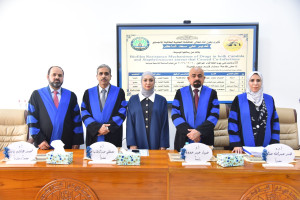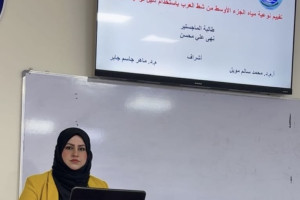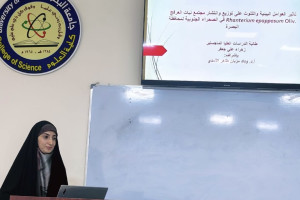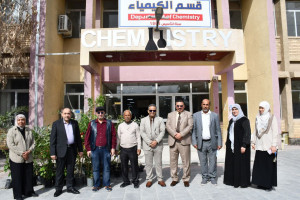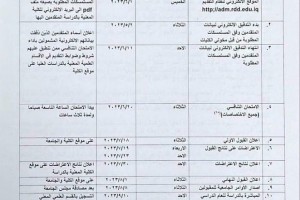
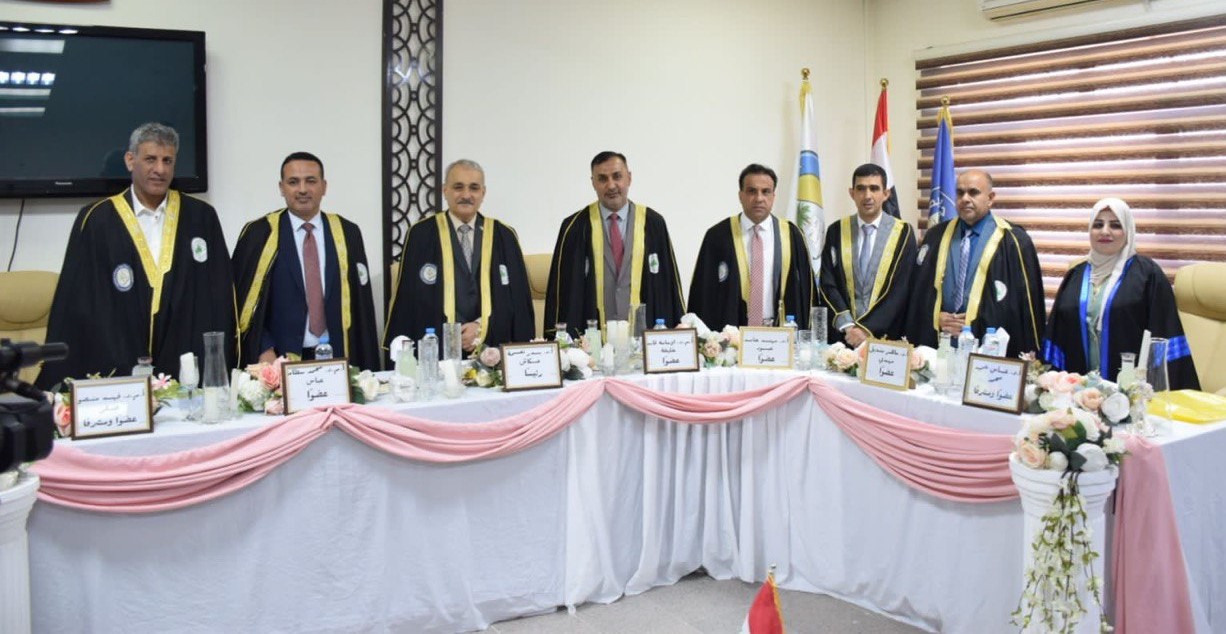
The Department of Geology, College of Science, discussed a PhD thesis entitled (Biological and stratigraphic study of the Yamama Formation in several selected wells in southern Iraq). The researcher Shatha Abbas Mohsen's thesis aims at diagnosing fossils and the possibility of distinguishing them in rock slides and their importance in life stratification studies and deriving ancient geographical environments, in addition to defining life zones and determining the chronological age of rock units.
The study included the identification of 71 types of fossils belonging to several genera from different life groups, and the main groups in the formation were dominated by the benthic Foramenfera fossils, calcareous algae and stromatoporids. The formation contained a clear biodiversity of marine calcareous algae, which included hosts (Chlorodesia, Dicycladesia and Codicia) and the predominance of green algae. According to the rock and microscopic diagnosis, 5 of the main micro-facies and 11 secondary facies were identified that were deposited in the lagoon environment, the shallow barrier environment, and the reef environment Rhododendron, and it ranges in the open sea environment from the environments of the middle slopes to the outer ones.
